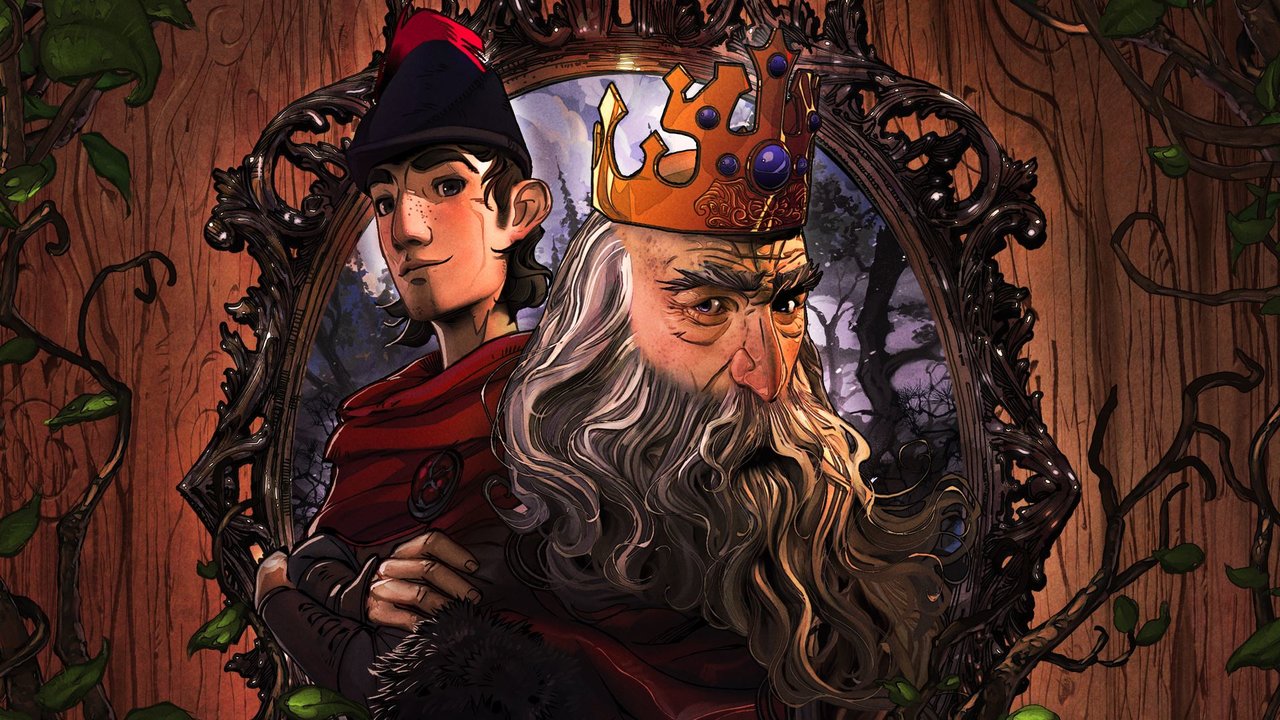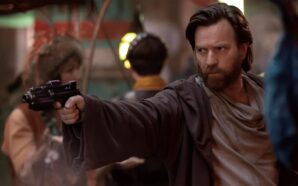Since finishing Uncharted 4: A Thief’s End I have been working my way through my PS+ back catalogue and I’ve been finding King’s Quest Chapter One an absolute delight to play. It couldn’t be more different from an Uncharted game so it’s been an excellent palette cleanser. If Uncharted is your summer blockbuster then King’s Quest is your annual Christmas cartoon.
King’s Quest is a classic Adventure game where free form combat isn’t possible. Due to the nature of the genre any and all scenarios are a series of quests that are completed once you have a certain item. Therefore, you can’t run around solving your problems by swinging an axe at your enemies and King’s Quest does a brilliant job at reminding you of that.
In fact, early on in Chapter One you acquire an axe. If you try to use the axe at any given time the narrator will remind you that using it like a weapon won’t work. Because this is an Adventure game the item will only work when the quest line allows it to. It’s an ironic dig at the games industry, because in any other game the player would have the control to flail the axe around aimlessly, perhaps beheading foes for meagre XP.
Yet, even though I knew I couldn’t use the axe to chop down every bush and every tree I journeyed past it didn’t stop me from trying.
And this got me thinking: Even though I know the rules of the game why was I compelled to try chopping down the flora of Daventry? I’ve come to a few conclusions.

The Limitations of Games and Our Unrealistic Expectations of Them
Videogames are essentially virtual playgrounds and the Open-World format is the best example of this. Titles like GTA V encourage players to explore the world and partake in mundane activities. Not because they have to but simply because it’s possible to. This level of complexity becomes a part of game design we expect to see applied to all other games.
Now that I have finished Uncharted 4 and have a taste of what characters can look like on PS4 my heart shrinks two sizes when I see character models that barely scratch the surface of the visual fidelity Naughty Dog were able to achieve.
And I totally understand that not every studio has the money, time or skill that Naughty Dog and Rockstar have, which is why I also understand how unreasonable it is for me to judge a game when it doesn’t meet the same exceptional criteria.
And that’s why I keep trying to chop down that tree, even though I know it won’t do anything.
Action, Reaction, Cause and Effect
However, it might be simpler than that: the human brain.
If there is a tree obstructing your path and you have an axe in your hand what’s the first thing you think of doing? You try to clear a path by using your axe on that obnoxious tree. Videogames have partly conditioned us that destroying (or moving) objects offers rewards – be it XP, currency or a clear path – but odds are my brain is taking real-world knowledge and trying to apply it to the game.
In real life I know that if I need to chop down a tree I need something sharp so I carry that information over to King’s Quest. However, real-world physics do not apply to the virtual world of Daventry, and so the tree is not felled.
It’s the exact same reason why you try to shoot windows, cars and birds in any game featuring guns, windows, cars and birds; You want to see the glass shatter, the metal to dent and the bullet-riddled birds to fall from the sky.
Your brain suggests your actions should cause a reaction and the only way to find out is to try. Why is that important? Videogames aren’t necessarily about taking action but they are about interaction.
And that’s why I keep trying to chop down that tree, even though I know it won’t do anything.
Interaction Demands Rewarding
Gone Home is another game I crossed off my PS+ back catalogue recently. In Gone Home you can interact with plenty of items in the house but most of those interactions amount to nothing. I spent far too much time picking up coasters and empty mugs, rotating them in the air searching for a reason why picking them up was possible in the first place.
These interactions were meaningless, and because interacting with the objects had no repercussions it felt like bad game design. Repercussions in games don’t have to be positive ones either, as anyone who has gone on a rampage will know.
In an interactive environment we want to be rewarded (or punished) for our interactions. When those expectations aren’t met (for example, picking up an empty mug just to put it back down again) it makes our input (in this case, playing the game) pointless.
And that’s why I keep trying to chop down that tree, even though I know it won’t do anything.
And it’s the same reason Rory Powers tries to light the candles, even though he knows it won’t do anything.








